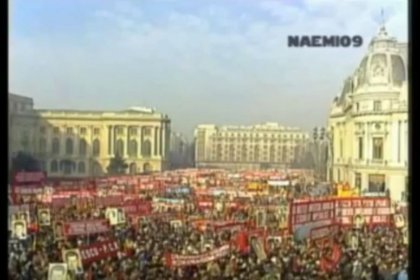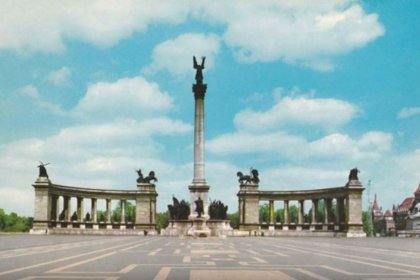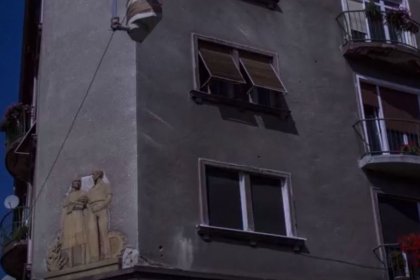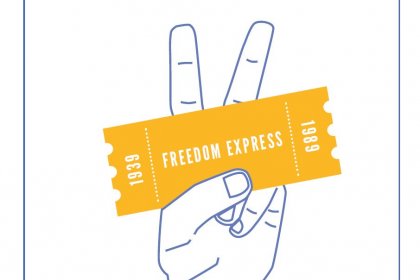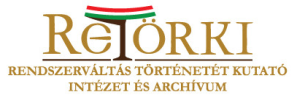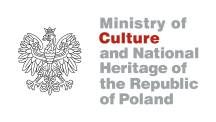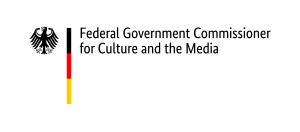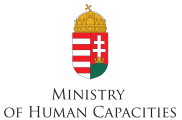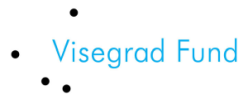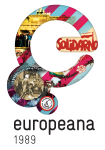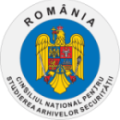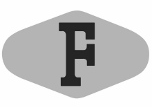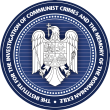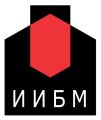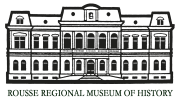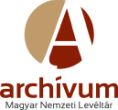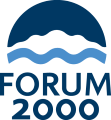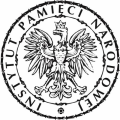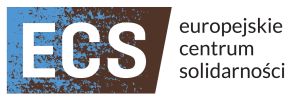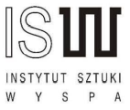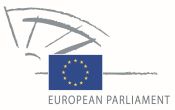For fourteen days, twenty young people from ten European countries travelled around Europe in the footsteps of 1989. Artists, journalists and historians chosen in an international contest visited six countries in Europe in a two-week period, starting from Solidarity's Gdańsk, through Timisoara in Romania, ending in Berlin.
GDAŃSK
The participants of the study trip met for the first time in Gdańsk. An official commemoration of the outbreak of the Second World War at Westerplatte was a symbolic beginning for their journey in search of the traces of the struggle for freedom. The participants visited the newly opened European Solidarity Centre, built in the Gdańsk Shipyard where Solidarność was born. They listened to a speech by Lech Wałęsa and a lecture by prof. Gesine Schwan, German politician and political scientist. They then visited the exhibition in the European Solidarity Centre together with Zbigniew Bujak, a famous member of the anti-communist opposition. The young people saw Gdańsk Shipyard during their trip on the Subjective Bus Line. During this trip they had the opportunity to meet former workers of the Gdańsk Shipyard and listen to their subjective histories of the place.
WARSAW
In Warsaw a city game called “Martial Law” introduced the participants to the reality of 1980s communist Poland. The Freedom Express participants had the opportunity to experience apprehension by the Civic Militia first-hand. Once their identities had been checked by the Civic Militia (MO), the group visited the cellars of the building used as the Headquarters of the NKVD (Narodnyy Komissariat Vnutrennikh Del, The People's Commissariat for Internal Affairs) in Poland in 1944-1945, and as the jail of the Provincial Public Security Bureau from 1945-1948. Next they visited a Solidarność underground print shop to learn the secrets of so-called "second circulation". This print shop for resistance leaflets and periodicals has been recreated in detail in the basement.
On the following day, the participants visited Rakowiecka street and the prison where many opposition activists were detained during the period of the Polish People's Republic. The group met with Jan Lityński - member of KSS "KOR"( Komitet Obrony Robotników, The Workers' Defense Committee, advisor to the management of Solidarność, and participant in the Round Table talks.
At the end of their stay in Warsaw, during a workshop entitled “We must win!”, the group, along with Paulina Codogni, moved back in time to 1989. They learned about the reality of the Round Table talks and preparations for the first partially free elections in the Eastern Bloc of 4 June 1989.
BUDAPEST
In Budapest the visit began with a tour of the Memento Park - a unique collection of monuments from the communist period which were removed from their original locations in public spaces as part of the process of de-communisation. The participants talked to Márton Falusi - a poet and editor of the first independent magazine "Hitel", Prof. Pal Ko - a sculptor, Prof. Laszlo Szoerenyi - an art historian, Ákos Rethly - Director of the Memento Park, and Ákos Eleőd - an architect who conceived of the idea of the Park.
In the Hungarian Parliament the participants met witnesses of the political changes of 1989. The meeting was attended by László Kövér – a politician and current Chairman of the National Assembly, Sándor Lezsák – a Hungarian poet, teacher and politician who is also Deputy Chairman of the National Assembly, Mátyás Szűrös – a politician and temporary President of the Republic in the period between 18 October 1989 and 2 May 1990, and Péter Tölgyessy – a Hungarian politician.
The programme included a visit to the House of Terror Museum, which is dedicated to totalitarian regimes and their victims. At the end of the visit to Budapest the group met Ferenc Török, a Hungarian director of many award-winning films, including "Moscow Square".
SOPRON
The study trip then moved on to Sopron - a small Hungarian city on the Austrian border. It was the site of the Pan-European Picnic, a meeting of thousands of people in August 1989, which became one of the symbols of the fall of the iron curtain. It was organised by the Hungarian opposition with the permission of Hungarian authorities. During the picnic the border between Austria and Hungary was opened for a few hours. The participants of the study trip had the chance to talk about the past events with organisers of the Pan-European Picnic, László Magas and János Rumpf.
TIMIȘOARA
In Timişoara the Freedom Express participants visited the Museum of the Romanian Revolution (Memorialul Revoluţiei). At the local Museum of Art they saw an exhibition entitled "Before the End", which presents the "Securitate" secret police as a tool of dictatorship, and talked to Prof. Brînduşa Armanca of the University of Timișoara about the tragic stories of people who illegally crossed the borders of Romania.
In Timișoara the participants got to know the hero of the Romanian Revolution of 1989 - László Tőkés. This Romanian politician and clergyman of Hungarian origin inspired some of the first anti-communist demonstrations in Romania. Crowds gathered on the streets of Timişoara in protest against his eviction. The events in Timişoara reverberated in other Romanian cities, and eventually led to the overthrow of the Ceaușescu dictatorship.
BRATISLAVA
The one-day stay in Bratislava introduced the participants of the Freedom Express Study Trip to the atmosphere of the Velvet Revolution, especially in its Slovak context. In no other country of the former Eastern Bloc did artists play as important role as in Slovakia, which is why the group of young people met primarily with artists. In Umelka – an art gallery and café where Public Against Violence’s declaration was read out for the first time in 1989, the young people talked to the signatories of the declaration – photographer Ján Lőrincz, painter Miroslav Cipár, sculptor Jozef Jankovič and post-conceptual performer, painter and artist Rudolf Sikora. The conversation focused mainly on the details of the events of November 1989 and on the art, and its importance in politics and history. Earlier, at the Polish Institute, the Freedom Express group met Ján Budaj, who in 1989 was an opposition leader, organiser of happenings and social actions against the regime, and who is now the deputy mayor of Bratislava.
PRAGUE
During the two days spent in Prague, the participants visited places associated with the Velvet Revolution – Wenceslas Square, the famous balcony of Melantrich House (the "Svobodne Slovo" editorial office) and Národní třída – the place where a peaceful demonstration of students was suppressed on November 17, 1989.
In the well-known club Lucerna the participants took part in a special screening of the documentary "Plastic People of the Universe" about one of the most important opposition bands in Czechoslovakia. They then talked to the band members about the freedom of art in the period of communism and in modern times, about life choices, courage and perseverance in action. Theatre was also a part of the Prague trip - at the newly opened premises of the Vaclav Havel Library the participants saw "Audience" by Vaclav Havel, a play full of black humour and absurdity, still relevant due to its universal message.
A panel discussion about the events of 1989, the current political situation in Europe, and the role and possibilities for young people in social and political life was held at the German Embassy. The guests at the debate were: David Černý, an artist whose sculpture standing in the gardens of the embassy reminds us of the refugees from the former GDR who sought political asylum in the embassy of the former FRG in 1989, Jan Bubenik, a former leader of student movements, and Senator Alexandr Vondra, a former dissident.
BERLIN
At the end of the trip the Freedom Express participants spent three days in Berlin to learn about the interesting and difficult 20th century history of Germany. The group took part in a panel discussion with Gerd Koenen, Karel Schwarzenberg and Markus Meckel, which was organised by the Federal Foundation for the Reappraisal of the SED Dictatorship. They then attended a meeting with Monika Grütters, the Federal Government Commissioner for Culture and the Media, during which the current results of the trip were presented along with the profiles of the participants and samples of their work created en route. The history of the members of the former Eastern Bloc and the current political situation in Europe were also discussed.
At the end of the stay in Berlin the group talked to the artists and authors of the murals on the Berlin Wall during a visit to the East Side Gallery, and took part in a meeting with political scientist Mark Keck-Szajbel, PhD of the University of Viadrina, historian Stephan Wolle, PhD, and writer Claudia Rusch.

